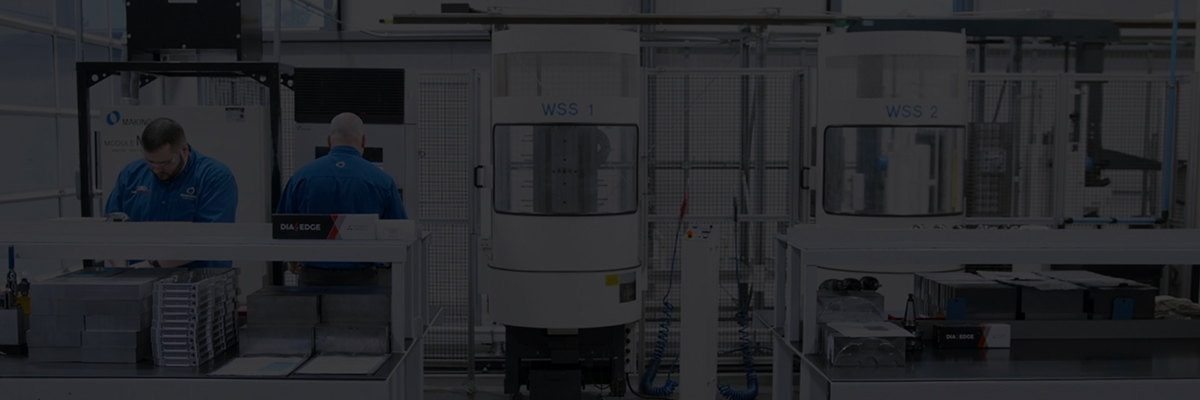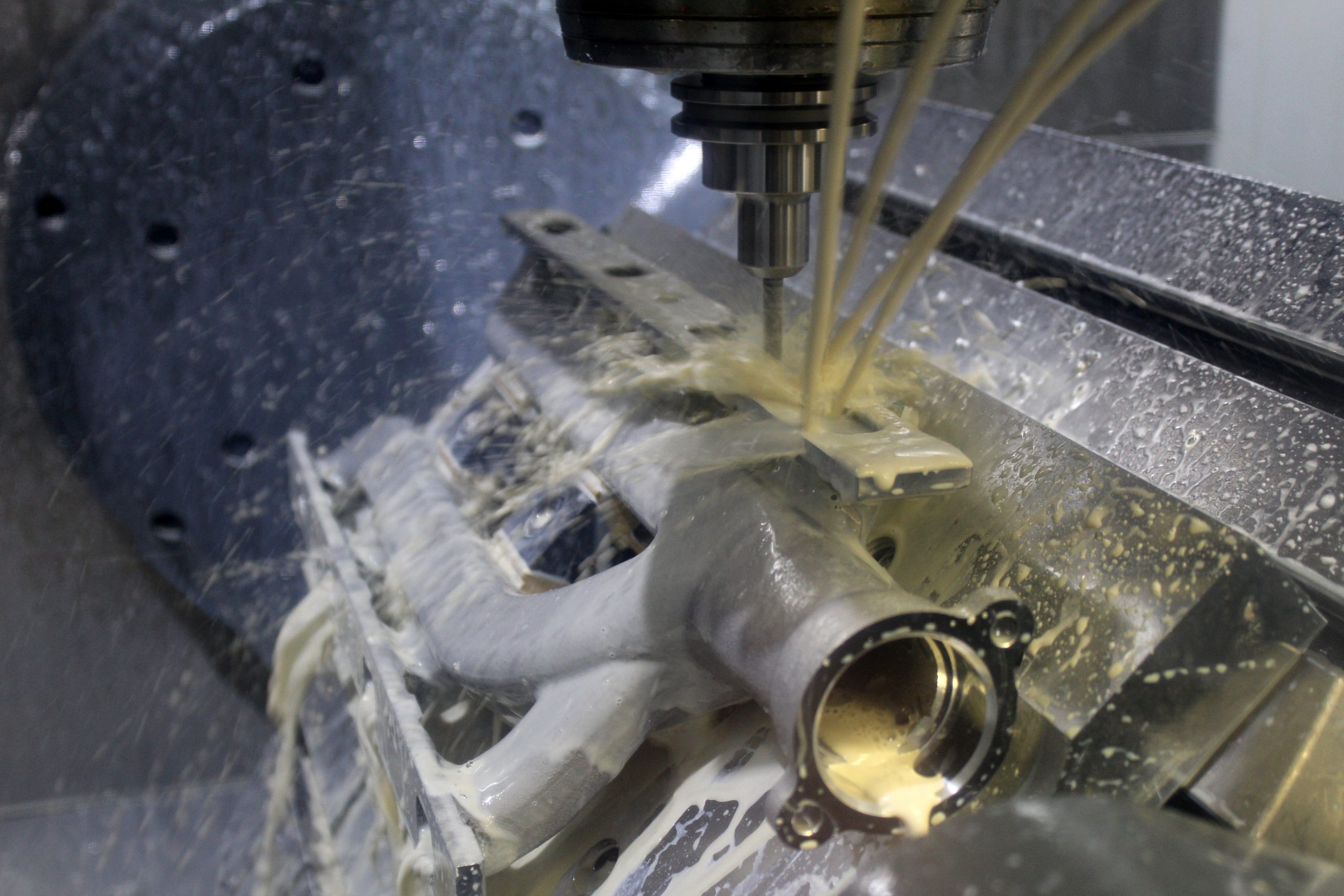
29 May CNC MACHINING 101
MOORESVILLE, NC – May 29, 2020 – Roush Yates Manufacturing Solutions (RYMS) is an advanced CNC manufacturing facility. Our expertise is in the machining of complex geometry parts that require robust process control. We provide an array of CNC manufacturing processes on 4 and 5 axis mills, multi-axis mill-turns, turning, Swiss turn, and waterjet machines to the aerospace, defense, automotive, medical, and industrial industries.
What is CNC machining and what advantages does it offer?
CNC Machining 101
What does CNC mean? CNC stands for Computer Numerical Controlled machining. It is the automated control of removing material, by means of computer programming, instructing a wide variety of cutting tools and fixtures to create a finish product. The most common CNC machines include vertical mills, horizontal mills, and lathes.
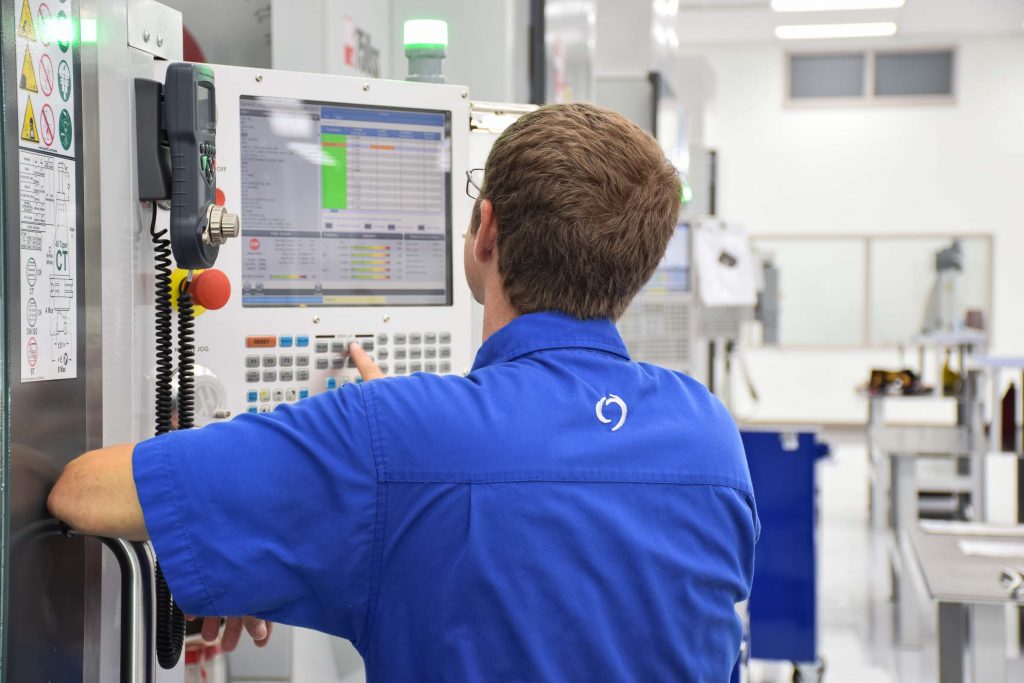
How CNC Machining Work?
A CNC machine is usually comprised of automated tools and in some cases automated platforms which are both controlled by computer programming. These instructions are delivered to a CNC machine in the form of program instructions such as G-code and then executed. In general, the programs can be written by a person or assisted by CAM (computer aided manufacturing) software.
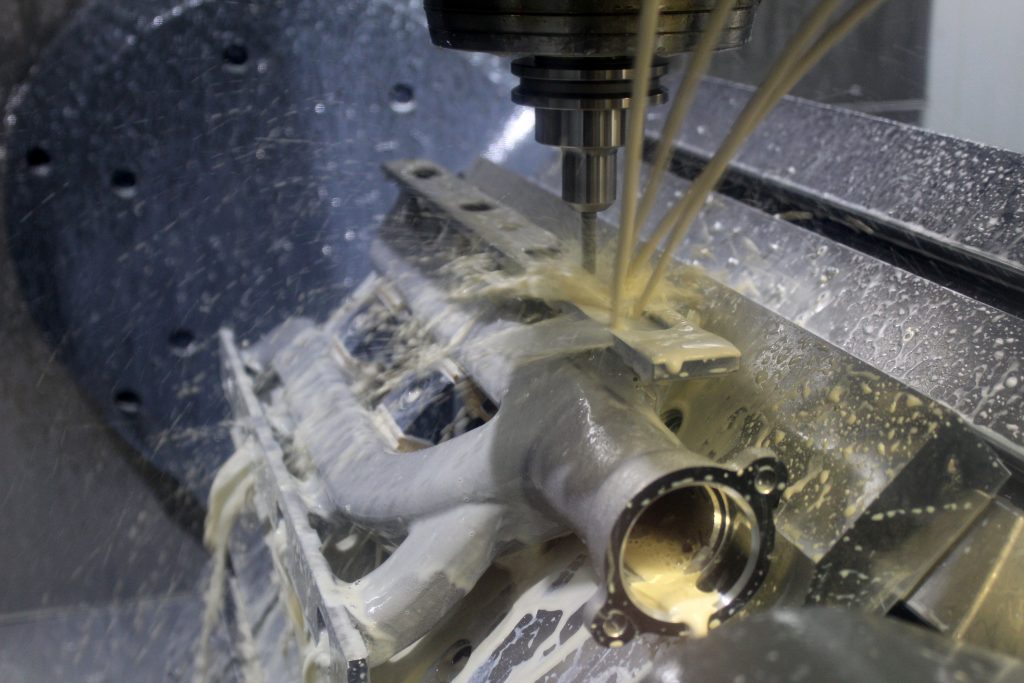
A CAD (computer aided design) model can be loaded into the CAM software and tool paths are created based on the required geometry of the manufactured part. Once the tool paths are determined the machine code communicates with the machine the program for a particular project, communicating with the machine what tools to use, where to go and how long to machine in a specific position. If a 5-axis machine is used the program controls not only the X, Y, and Z milling locations, but also the A, B or C platform adjustability.
What types of CNC machines are there?
The most common types of CNC machines are lathes, Swiss turns, vertical mills, horizontal mills, and multi-axis mill turn.
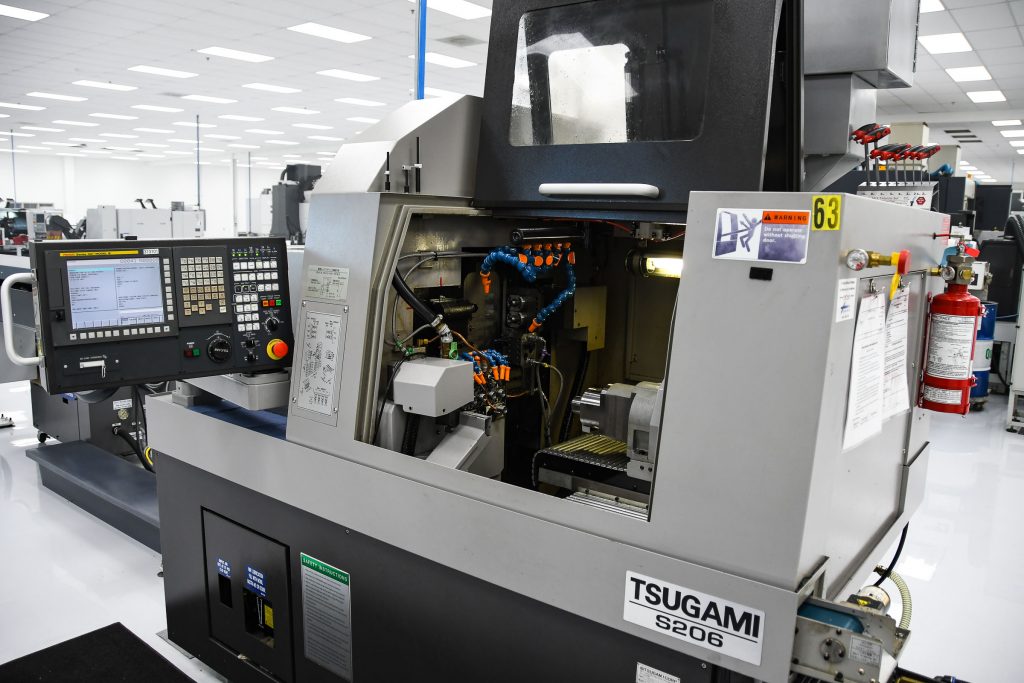
With Turning equipment, like CNC lathes and Swiss turns, the part stock turns on the spindle and the fixed cutting tool is brought into contact with the workpiece. Lathes and Swiss turns are perfect for cylindrical parts and are easily set up for repeatability. In some cases, an automatic bar feeder can be added to the turning equipment allowing the machine to run automatically until the material is completed.
There are vertical mills and horizontal mills. This indicates the direction in which the tools are located and the way they machine from, either the top (vertical) or side (horizontal). CNC machines can be simple 2-axis machines where only the tool head moves in the X and Z orientation or much more complex 4 and 5 axis CNC mills, where the platform can also move. This allows for more complex machining to be down without requiring the part to be moved to a different machine. This makes it easier to produce complex parts and reduces down time and set up time.
Multi-axis mill-turn machines allow for milling and turning to be accomplished on the same machine. With this additional flexibility it enables another level of flexibility and adjustability for a complex part production. In addition, it reduces the need for multiple set ups and movement of the part to multiple machines which translates to a more efficient and cost-effective bottom line.
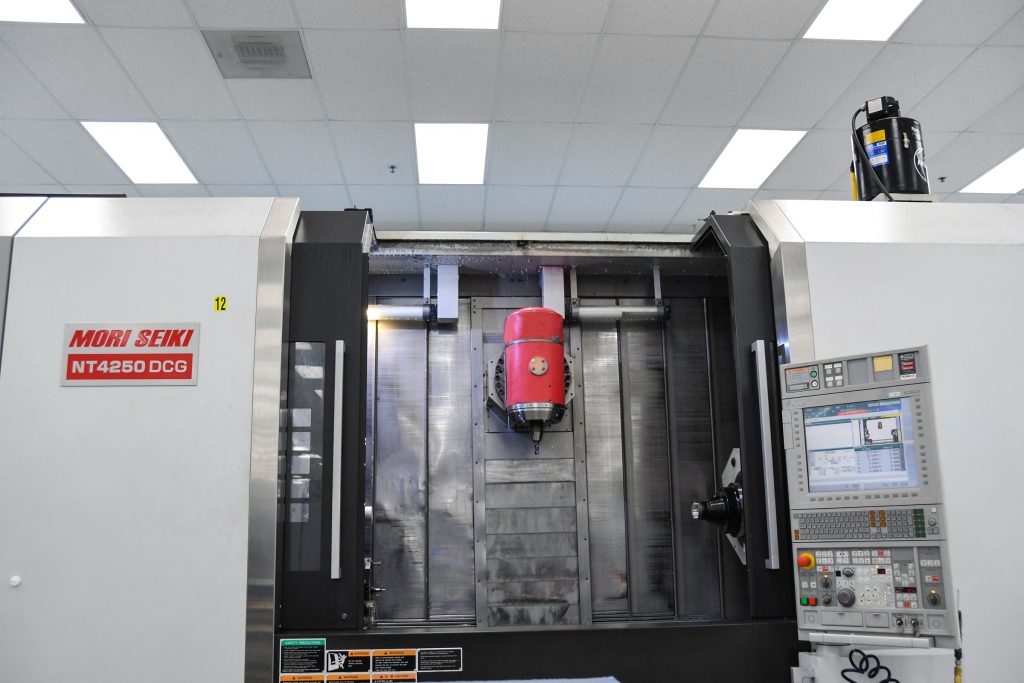
What advantages are there to CNC machining? There are several advantages to CNC machining.
- Repeatability/Precision – A CNC program is like a recipe and once it has been created and a machine is programmed, it can run once or an infinite amount of times.
- 24/7 Production – With our numerous automated CNC machining centers, we are built for precise manufacturing around the clock and which makes CNC machining one of the most cost-efficient and efficient manufacturing processes.
- Versatility – Our network of CNC machines makes it very easy for us to adjust to any type of standard or exotic materials, from aluminum, titanium, to Inconel. The material can be machined from billet, forgings, or castings.
- Quality – Once a program is validated and first off parts are verified a CNC machine will continuously make the same part and to stated specifications making for a quality part time and time again.

